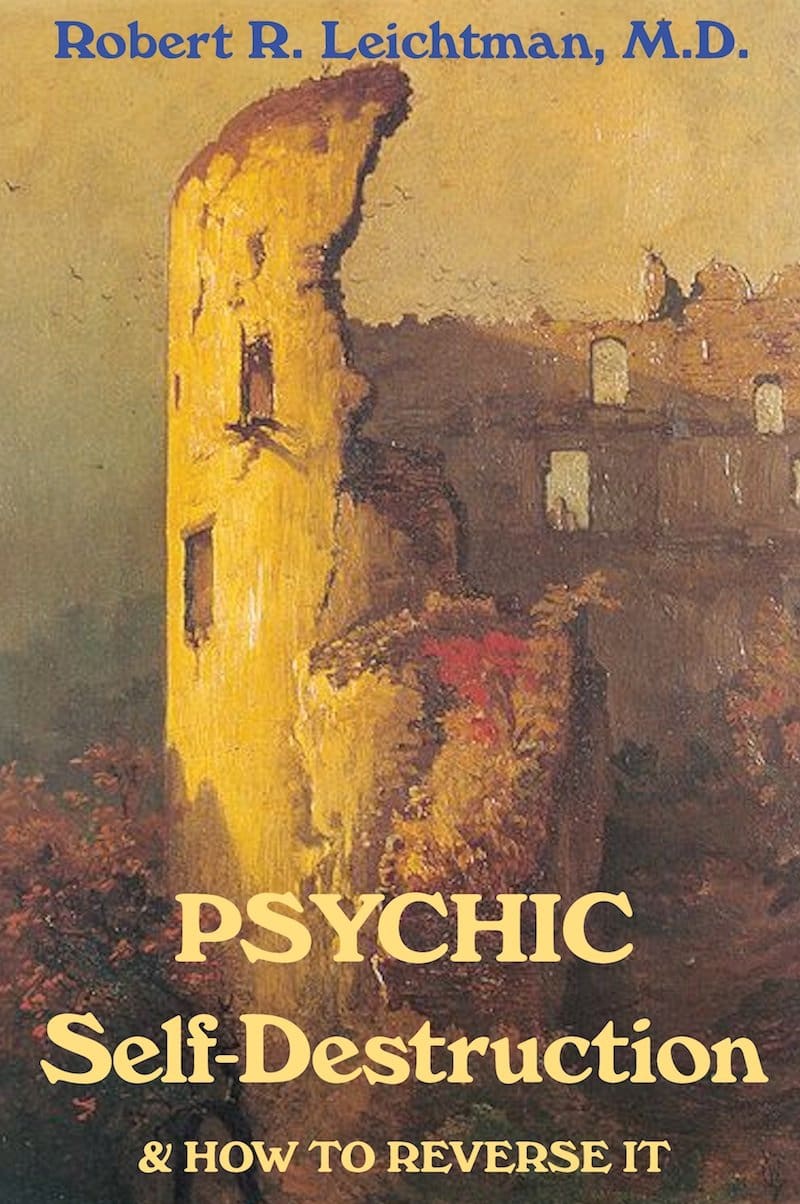Perhaps the greatest imbalance leading to self- destruction is the unintegrated personality—a most peculiar and mysterious unevenness in our mood and responsiveness. An unintegrated personality is one that has been fragmented into separate zones— mature beliefs and habits in some areas and wildly immature ones in others. The result might be a very intelligent person who does well in career activities but behaves stupidly in personal relationships. Or, he may be compassionate and resilient most of the time, but then flash unexpectedly into rigidity and intolerance. A classic type of an unintegrated personality is sweet and patient in general, but nasty when it comes to religion or politics. Others are assertive and commanding in their career, but far too passive and permissive in domestic situations.
The end result is major pockets of resentment, fear, dislikes, and disappointment in people who are usually affectionate, tolerant, and cheerful. It is as if there are fertile continents of mature thinking, beliefs, and values that are interrupted by deserts of recrimination, depression, guilt, and doubt. Invisible boundaries separate the mature from the immature zones. The qualities that are needed to resolve conflict, forgive enemies, and rise above disappointment are all active, but are restricted to “safe” areas and rarely allowed to be used to forgive or heal. Their intelligence is unable to help them learn from their disasters and mistakes. Even worse, their capacity for rising above old losses and tragedies is never mobilized to heal emotional wounds.
Examples of how the lack of integration cripples personal development are almost limitless. Some people are tolerant and calm most of the time, but can dissolve into irritation for no apparent reason. Others are able to handle most types of stress and disappointments but will break down when their incompetence is criticized. Still others can be encouraging and supportive of those who are suffering, but are paradoxically intolerant and condemning of their own mistakes. These are a few examples of the unintegrated personality. It is a common occurrence that is rarely recognized for what it is. Therapists easily detect dysfunction, but then waste time addressing these elements within their clients—the very parts that are isolated from the healthy components needed for healing and growth. As therapists, they may be familiar with the concept of disparate sub-personalities, but have little idea how to summon healthy elements to treat the dysfunctional parts.
While these problems are obvious, their origins are less clear. Somehow, the personality can become too compartmentalized. That is, our intellectual activities and skills can operate largely outside of our abilities to be kind, calm, forgiving, and cheerful. Our emotions can function independently of our understanding and common sense. Our will power and assertiveness can sometimes operate without much thinking about the wisdom and consequences of our choices.
Such fragmentation can deepen if we separate past from present, leaving pockets of unresolved anger, fear, and sadness to continue to fester and erupt like geysers at frequent intervals. Sometimes it is a matter of being so attentive to immediate comfort and conve- nience that we thoughtlessly trade short-term relief or success for long-term trouble.
It is dangerous to neglect the truth that can set us free of our stubbornness, egotism, and rigidity.
Some people secretly recognize they maintain isolated pockets of moodiness and excesses in their behavior. However, they cultivate a perverse joy and excitement in being able to explode into hysteria and orgies of resentment, vilifying their adversaries, and wallowing in self-pity. These are people who seem to enjoy the strong emotional surge of excitement when they rant about adversaries and their ideas and behavior.
Others recognize that they can intimidate and manipulate people by being hysterical, demanding, and “impossible” to control. They expect people to obey them in return for getting them to calm down. Once they recognize they can control strong and intelligent people in this way, they often resort to various forms of emotional intimidation or seduction to get what they want. Their wrath or seductive and exaggerated helplessness is their weapon of choice for procuring special indulgences and boosting their self-esteem. Such people almost never surrender their pockets of anger, fear, or sadness, for it would mean the loss of personal power. Even worse, it would mean admitting that they have repeatedly hidden behind rudeness and selfishness to demand or procure things that were their responsibility. An honest and full recognition of their dishonesty and mistakes would come with a crushing weight of guilt. The price of truth and genuine healing becomes too costly.
Nevertheless, many brave people overcome these tendencies and develop a healthy set of beliefs and a lifestyle to go with it. There is just one caveat—the unresolved conflicts, unmet needs, fears, disappointment, and resentments of their past often remain unhealed. They may be successfully isolated, but the irritation attached to them remains as a current of toxic mental and emotional energy that continually leaks from the past into the present. This contamina- tion creates a force that dilutes their joy in living, confidence, and ability to assert themselves.
Like the rotting odor of spoiled fruit, the unresolved suffering of our past can intrude on our human and spiritual potentials and success.
These pockets of neuroses and immaturity must be recognized and accepted as part of us. We must learn to break down the walls that separate the past from the present and our maturity from our dysfunction. The good that we have within us must be used as a powerful resource to heal the dark parts. That is, we need to re-integrate our personality around mature and enlightened values and qualities.
The great barrier here is not the lack of information or understanding. It is our ego’s desire to avoid exhuming our most embarrassing and immature, painful memories and exposing them to the light of common sense, wisdom, goodwill and forgiveness.
